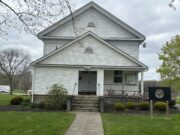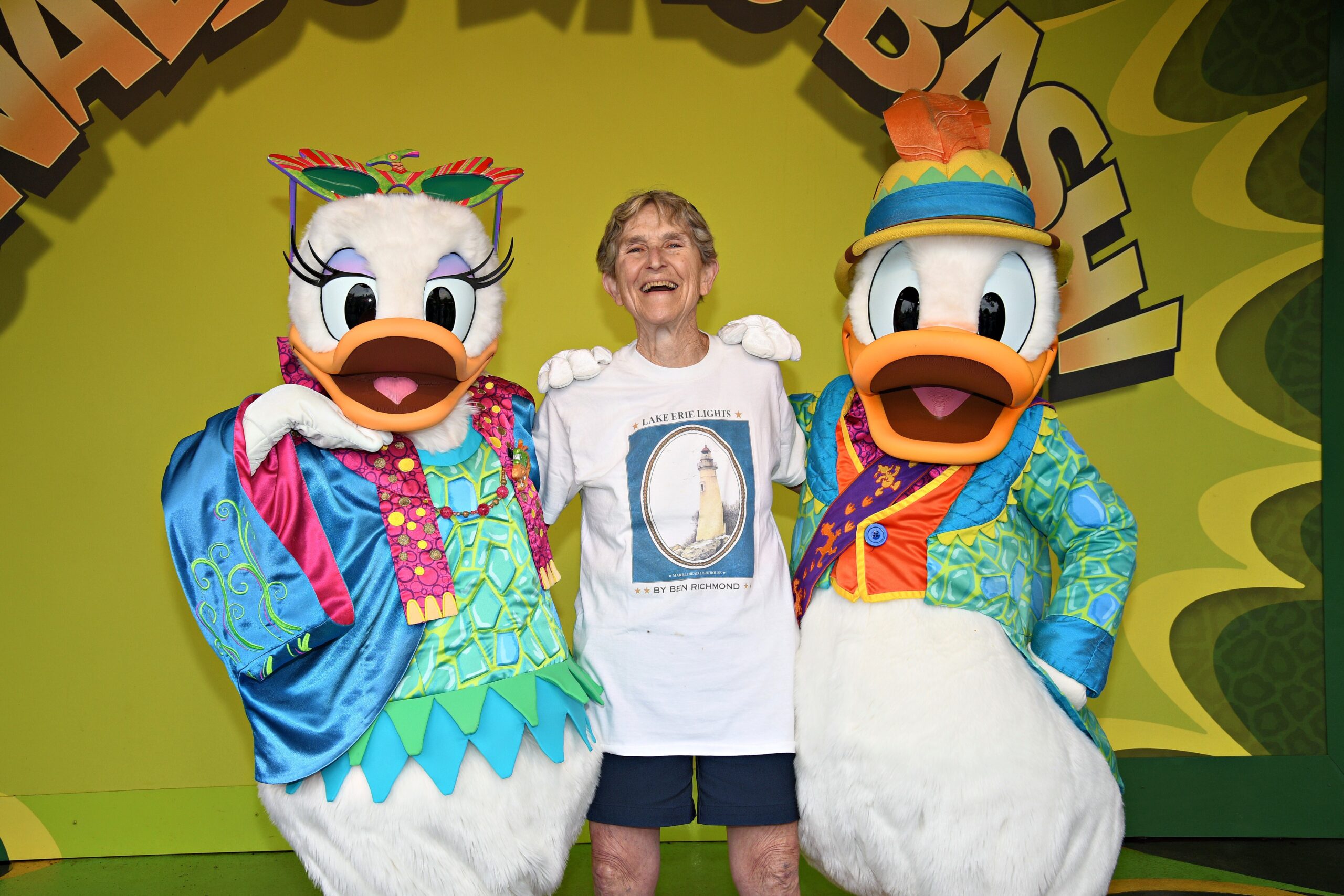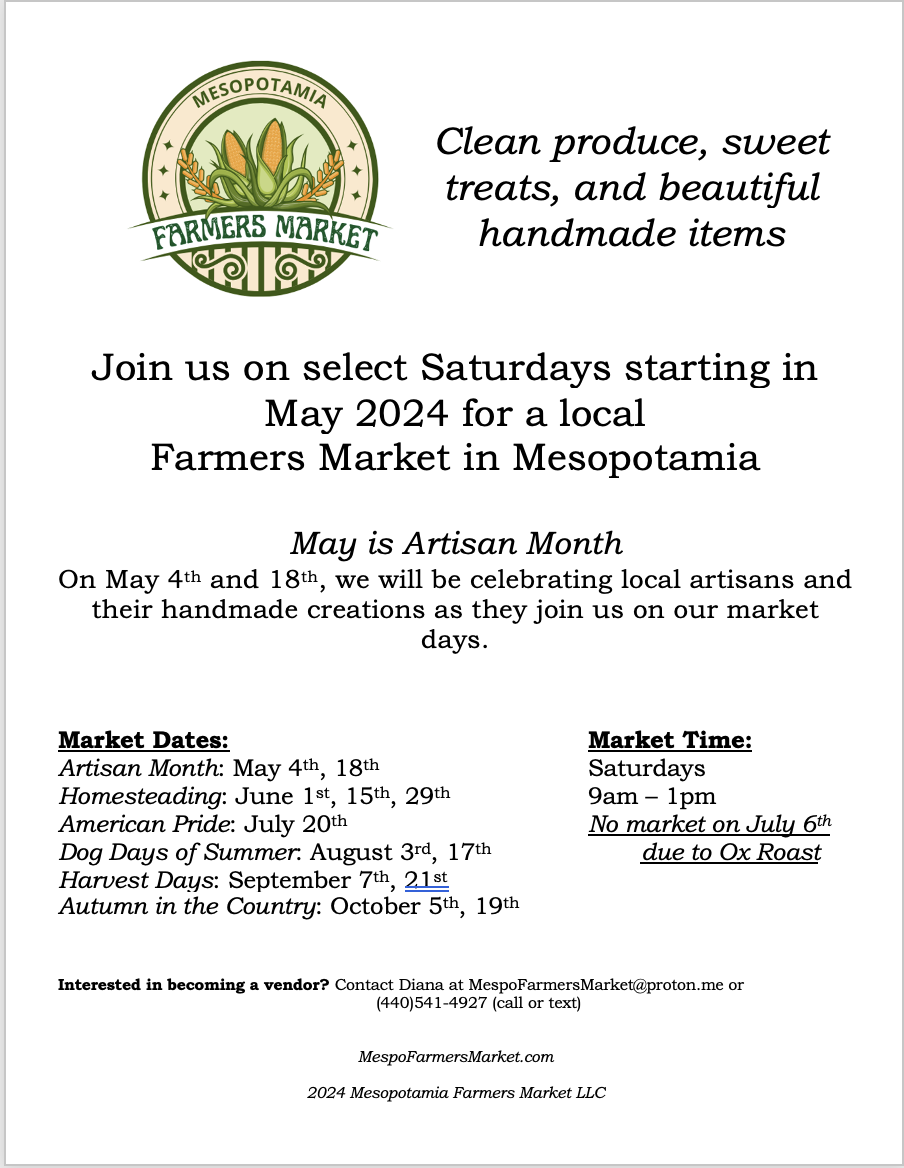“Milking History” was the title given to the oral history program presented by the James A. Garfield Historical Society on Sunday, May 21, 2023 at the Garrettsville Village Hall. And, Boy, did they ever! Milk it, I mean. Moderators Jim Vincent and Denise Ellerhorst kept things moving and directed, while Tim Smith was the video man-of-the-moment, capturing the presentation for posterity. The questions were illuminating and the audience was appreciative.
Our star agriculturists were Dave Winchell, Stan Carlisle, Karen Kelker Miller and Paul Rand. They hailed from the townships of Hiram, Nelson and Freedom but had major connections with the Village of Garrettsville, its community, its enterprises and its growth. And they were pretty good storytellers too; it was an afternoon of entertainment provided by real information.
Childhood memories were explored, as were the advantages and singular experiences of farm living. Among these were the on-site animals (Not everybody loves to milk cows…but some do. And then there are the barn cats.), the variety of experiences, respect for the land and Nature, appreciation of the seasons as well as their effects. The stories were nothing if not colorful.
Among the “best jobs” was “taking lunch to Dad in the field”, going to the feed mill…and hearing the stories there, driving the tractor (being seen as responsible enough to do it.), getting in the creek. Among the not-so-favorite activities were getting up early in the morning and cleaning the stalls–by hand! Chicken houses had to be cleaned out–no fun job, but at least they paid off in eggs…which could then be sold to the folks up the street.
Fun times with friends included picnics of all sorts, with family, with neighbors–threshing and baling hay were activities that drew in extra help that had to be fed. Bales are not what they used to be; the big, round ones do not require the same type of labor as the older, rectangular ones did. Piglets were mentioned, as were a herd of cows getting out and making for that “greener grass” on the other side of the fence. A metal detector has afforded one farmer the opportunity to find interesting items from interesting eras on the farm. There were fires–buildings, equipment, etc. There were winter snows; tribute was paid to the milktruck drivers, both the ones who had to get to the farms in inclement weather and poor conditions, and the ones who–back in the day–delivered to the townfolk expecting cream for their morning coffee, snow or no snow. This situation moved from just plain raw milk to pasteurized milk, to homogenized milk–delivered seven days a week…quite the commitment. So was making maple syrup–without benefit of pipelines, reverse osmosis or gas-fired boilers. The historical comparisons between farming then and farming now had a lot to do with the prices of equipment–$500K combines, 12-wheel tractors–and the income to the small farmer, whether livestock, dairy, beef or grains…or anything else, for that matter. Income has lagged.
The family influences and foundations were fascinating (Grandpa bought the farm in 1915. The receipt books for the dairy listed by street in Garrettsville or Hiram. Research into who owned the farm and when and why it was sold. The maple grove that SugarBush was named for.) and funny too. Elsie the Borden Cow was Stan Carlisle’s date for trips around the country and up into skyscrapers (in the freight elevator); Elsie had a calf named Beauregard who also made personal (or…since they were not persons) bovine appearances. Lucky they didn’t have Elmer, the glue guy with them; he was part of the Borden family with a whole different focus–and product. Rudy Kelker got some laughs too in his role as a public school teacher interacting with some of the audience members, back in the day. Running a maple syrup operation and a farm and a bunch of kids at home was no easy task. Grandpas and Grandmas appeared often in the narratives, either as founding owners of the farms or as “memory makers” that deepened the family experience. Just about everyone remarked on the fact that farmers do not often take vacations; somebody has to milk the cows, deliver the milk, bale the hay, boil the syrup, collect the eggs, feed the pigs. Some manage to find reliable back-up folks to steal away briefly, but it’s not easy. Vacations are few and far-between for most farmers.
What was easy to take was the enjoyment of the entire program and the easy give-and-take between the panelist farmers, the attentive audience and the event moderators. Ditto for the abundant refreshments–farm-fresh, no doubt.















